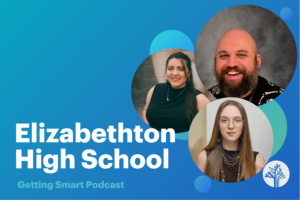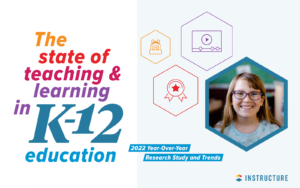Combining Standards & Interests for Student Success
Reinventing Schools Coalition, led by missionary Rich DeLorenzo, is out to change the world:
The RISC Approach to Schooling is a revolutionary approach to education that represents a dramatic shift in the educational process. The RISC approach is the first comprehensive school reform framework set up as a performance-based system rather than a Carnegie unit or time-based system. Already being implemented by more than a dozen schools and districts in the United States, RISC has caught the attention of educators in countries around the world who see it as a pathway for delivering on the promise of education for every child.
I spent the afternoon with the RISC team yesterday talking about personal digital learning. The RISC team has 20 years of experience creating performance-based learning environments in Alaska, Colorado, Maine. We agreed that next gen learning platforms would not only help vary the rate of learning but that it would customize learning pathways by interest and best learning modality.
One of the root causes we’re trying to attack is boredom–or more broadly, the disconnected student. Whether ahead, or behind, or simply not engaged, most U.S. kids are not getting the most of our school. Add our short year and day and many kids are getting half they learning they need. Part of the solution is building competency-based pathways (also see iNACOL report). The other half of the equation is tapping into student interests to boost motivation.
Lisa Nelson wrote a three part series on passion-driven learning kicked off by Preparing student for success by helping them discover and develop their passions which reviews Renzulli’s Total Talent Portfolio and SchoolWide Enrichment Model.
The second blog, When passion drives instruction no child is left behind
School is supposed to be a place where we get exposed to many things so when we’re done we’ll be rounded and have an idea of what to do next but let’s face it, the reality is school is a one-size-fits all prescription for attaining learning objectives set out for us by politicians or education committees that are by-and-large disconnected from what drives our students. At a recent conference with more than 1500 educators in the audience, the keynote speaker asked, say one word to describe your high school experience. In unison, the audience responded as though rehearsed – BORING! Is this the best we can do for our students? Teaching them to be good at spending 16 years being taught that learning is boring and doing well at it is the key to success? In the end school is a place where we are exposed to many things most of them boring and of other’s choosing.
She concludes:
When instruction is driven not just by data but by the passions of the students behind the data there is no child left behind scratching their head wondering what they’re going to do with their lives. They know that success is much more than a number and a test score, and these students do indeed know not only what they want to be when they grow up, they know what they want to be today.
Last in the series was Profile of a Passion-Driven Student:
Passion driven students might have talent profiles, develop personal learning networks through face-to-face connections and through social media, study in areas of deep personal interest, create and publish for authentic audiences, and they know what they want to do with their lives. In short, they’ve been encouraged to discover and unleash their passions. To follow is a profile of a real student who was encouraged to follow his passion at a school emphasizing student talents.
Right in front of us is the opportunity to build personal digital learning pathways that customize learning by level, interest, and motivational profile. Blending highly social and highly customized learning should boost persistence and achievement for most students.








0 Comments
Leave a Comment
Your email address will not be published. All fields are required.